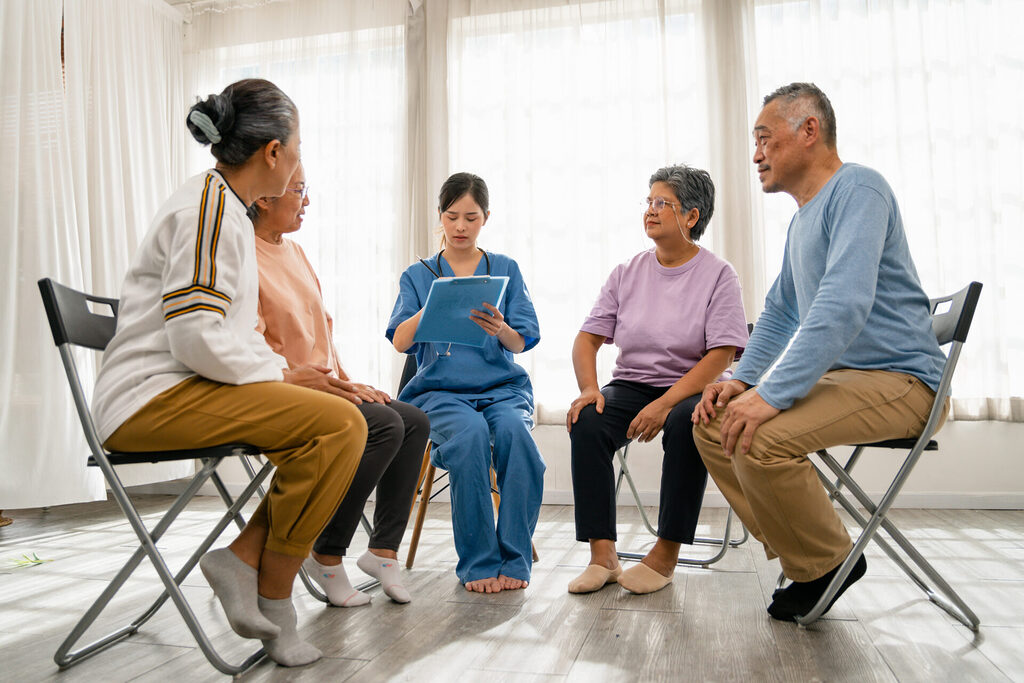Addiction can be an isolating and overwhelming struggle, affecting not only the individual but also their loved ones. Group therapy has emerged as a valuable tool in the journey to recovery, providing a supportive and understanding environment where addicts can connect, share, and heal together. In this blog, we will delve into the benefits of group therapy for addicts, exploring how this form of treatment fosters personal growth, offers peer support, and empowers individuals to overcome addiction for good.
Shared Understanding and Empathy
Group therapy creates a safe space where addicts can share their experiences with others who have gone through similar challenges. This shared understanding and empathy can be deeply therapeutic, as participants no longer feel alone in their struggles. By relating to others’ stories, addicts gain a sense of validation and realize that they are not defined by their addiction, but rather by their collective journey towards recovery.
Peer Support and Accountability
Being part of a group provides a network of peer support and accountability, which is crucial in maintaining sobriety. Group members hold each other accountable for their actions and progress, fostering a sense of responsibility towards themselves and the group. This support system encourages addicts to stay committed to their recovery goals and provides a safety net during challenging times.
Learning from Others
Group therapy offers a unique opportunity for individuals to learn from one another. As participants share their coping strategies, successes, and setbacks, others can gain valuable insights and practical tips for managing cravings, triggers, and stress. This collective wisdom accelerates personal growth and equips individuals with a diverse toolkit to navigate the complexities of addiction recovery.
Enhancing Interpersonal Skills
Addiction can strain relationships and erode interpersonal skills. Group therapy acts as a training ground for addicts to rebuild their social skills and develop healthier communication patterns. By interacting within a supportive group setting, participants learn how to express themselves effectively, resolve conflicts, and form authentic connections without relying on substances.
Challenging Negative Beliefs
Group therapy provides a platform for addicts to challenge negative beliefs and self-perceptions associated with their addiction. Through feedback and encouragement from group members, individuals can gain new perspectives on themselves and their potential for growth. Challenging these negative thought patterns is a crucial step towards developing self-compassion and building a strong foundation for lasting recovery.
Processing Emotional Trauma
Many addicts have experienced emotional trauma that may have contributed to their substance use. Group therapy offers a therapeutic space to process these emotions, share traumas, and receive support from others who understand the impact of trauma on addiction. As individuals confront and work through their emotional wounds, they can begin to heal and find healthier ways to cope with past pain.
Cultivating Hope and Resilience
Witnessing the progress and successes of fellow group members cultivates hope and resilience in addicts. Seeing others overcome challenges and achieve sobriety can inspire individuals to persevere through their own struggles. This shared hope within the group reinforces the belief that recovery is possible and that a brighter future awaits.
Group therapy is a powerful and transformative approach in the journey towards addiction recovery. By providing a platform for shared understanding, peer support, and personal growth, group therapy offers a unique healing experience for individuals struggling with addiction. Through interpersonal connections, empathy, and shared learning, participants can challenge negative beliefs, process emotional trauma, and cultivate hope and resilience. As part of a supportive community, addicts gain the tools and strength needed to overcome addiction and build a healthier, fulfilling life. If you or someone you know is facing addiction, consider the benefits of group therapy as a vital step towards lasting healing and recovery.












